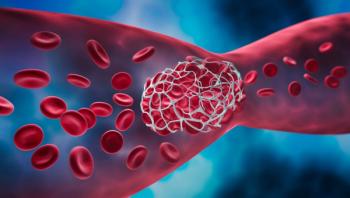
Gene Therapy for Hemophilia As a ‘Paradigm Shift’
Roctavian for hemophilia A and Hemgenix for hemophilia B could spare some patients from treatment that involves intravenous infusions of clotting factors several times a week. But a hemophilia expert cautions that the high-priced gene therapies aren’t a cure and that the reprieve won’t last a lifetime.
First part of four
Hopes are running high for gene therapy for hemophilia, although their sky-high prices are worrying anyone managing the cost of healthcare.
“Some people use terms like ‘hemophilia-free mind,’” said Courtney Thornburg, M.D., M.S., medical director of the Hemophilia and Thrombosis Treatment Center at Rady Children’s Hospital-San Diego. “They’ve had the (gene therapy). They don’t have to be thinking about hemophilia and access to care every single moment. I think that’s the big thing that sort of makes the paradigm shift.”
But in a recent interview with Managed Healthcare Executive, Thornburg also cautioned that the gene therapies shouldn’t be lifetime cures because of evidence from pivotal clinical trials that share their effectiveness at producing missing clotting factors wanes. “I think the thought of a cure where you get to 100% (and) you never have to have any hemostatic treatment the risk of your life is not the expectation.”
Thornburg was the lead author of a review of the hemophilia gene therapies published in the journal BioDrugs in July 2023. She treats children hemophilia and, so far, the Roctavian (valoctocogene roxaparvovec) and Hemgenix (etranacogene dezaparvovec) are approved for use only in adults. But Thornburg has published several articles about gene therapy for hemophilia and helped develop a shared decision-making tool for gene therapy for the World Federation of Hemophilia.
Roctavian and Hemgenix have roiled the waters of managed care, particularly the management of drug expenditure, because of their astoundingly high prices and as harbingers of an era of many cell and gene therapies that will have six- and seven-figure price tags.
Roctavian, which like Hemgenix is a one-time treatment, is priced at $2.9 million (using the wholesale acquisition cost) and Hemgenix is priced at $3.5 million. However, even at those prices, the treatments fared reasonably well in an Institute for Clinical and Economic Review cost-effectiveness analysis because the cost of treatments they are replacing, even if it is for a limited period, are high.
Related:
In a wide-ranging interview, Thornburg discussed the durability of Roctavian and Hemgenix, the use of corticosteroids to dampen immune responses that might negatively affect the effectiveness of the gene therapies and factors that should be considered in deciding whether someone is a good candidate for these gene therapies.
In this segment of the interview, she discusses the treatment with clotting factors, which she noted can prevent bleeding and allow people with hemophilia to lead fairly active lives. “But this depends on regular access to healthcare, your remembering to get the factor, the time spent (getting the infusions). “Although it’s very effective, there is treatment burden and it’s something that someone always has to be thinking about.”
Thornburg noted that emicizumab, a factor 8 mimetic sold under the brand name Hemlibra, has helped reduce the treatment for many patients. It is administered subcutaneously and between one and four times a month, she said. “It offers great hemostatic protection,” she said, adding, that patients can still have breakthrough bleeding and that it requires “the same diligence in terms of having access to the treatment and following up.”
The gene therapies dangle the prospect of not needing regular treatment — the “paradigm shift” that is in the title of Thornburg’s review paper and which she talked about during the interview with Managed Healthcare Executive. But Thornburg also underscored that gene therapy patients will need to be prepared for a period of “intense” clinics visit before and after the one-time treatment.
Thornburg disclosed in BioDrugs that she has institutional grant funding from BioMarin Pharmaceuticals, the developer of Roctavian and had received honoraria from CSL Behring, the developer of Hemgenix. The review itself was supported by funding from the federal government’s Health Resources and Services Administration. The co-authors of the review are Dana H. Simmons, Ph.D., a medical writer who declared no conflicts, and Annette von Drygalski, M.D., Pharm.D., director of the Hemophilia and Thrombosis Treatment Center at University of California, San Diego, who reported that she had received honoraria from BioMarin and CSL Behring and was co-founder of a Hematherix LLC, a biotech company developing a therapy for bleeding complications.
Newsletter
Get the latest industry news, event updates, and more from Managed healthcare Executive.

























